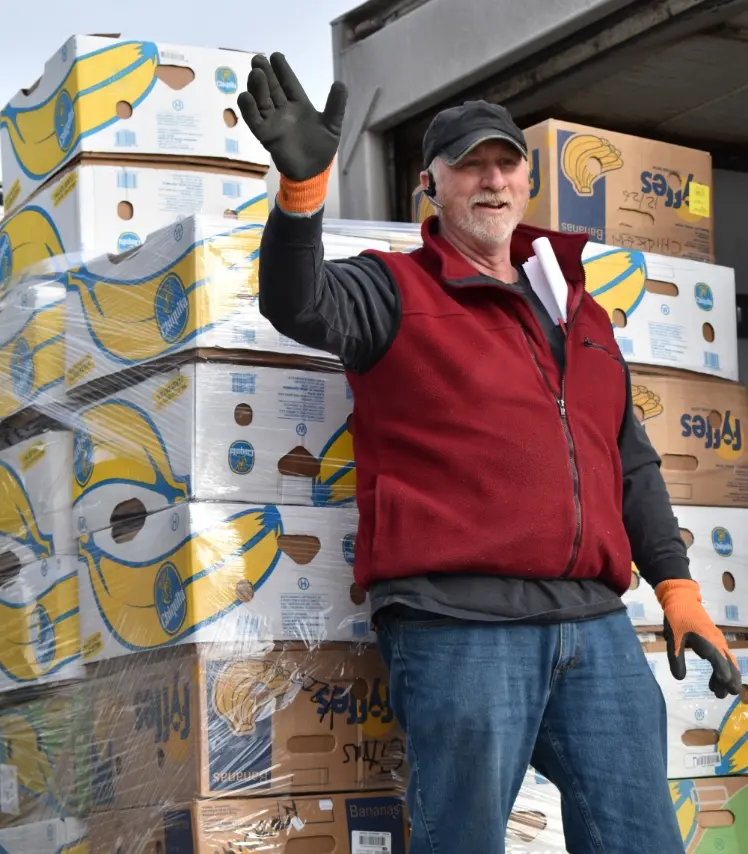Building a Food-Secure Maine
Turning food distribution into long-term stability with Good Shepherd Food Bank

Right now, people impacted by hunger in Maine face a unique set of challenges as the strain of increased food costs, inflation, and the expiration of pandemic-era public benefits take their toll. From the parent in the supermarket checkout line worried they won’t have enough money to pay for the food in their cart to the student going to bed on an empty stomach, or the older Mainer torn between paying for medicine or the healthy food they need to thrive, many Mainers are making tough choices every day.
Maine is facing a hunger crisis.
According to data from the USDA, Maine has the highest rates of hunger in New England with approximately 10% of households experiencing food insecurity in 2022. That number jumps for children, with 1 in 7 Maine kids lacking reliable access to enough affordable, nutritious food. And the situation is worse for communities more impacted by hunger, including all Mainers of color and poor and working-class white communities.
But the data only tells part of the story. The reality for many food pantries is an even starker picture. Since last spring, many food pantries across Maine have reported an increased level of need that surpasses even the intense demand seen during the pandemic.
Maine has the highest rates of hunger in
New England with approximately 10% of households experiencing food insecurity in 2022.
A sampling of data from 40 Maine food pantries supports the trend of increased need that we are hearing, indicating that food pantry visits have increased by more than 35% between 2022 and 2023, including an estimated 15% increase in overall households served. With your support, we can continue to keep up with these increases.
We know that ending hunger for good, not just temporarily, is not just about food. It’s also about poverty. The challenges that many people experiencing hunger face — including barriers to employment, housing, education, health care, and more — must be addressed to bring long-term stability to Maine families.

The good news: We know how to solve the problem.
During the pandemic, unprecedented philanthropic and governmental response led to Maine’s lowest rates of hunger in nearly 20 years. We learned that when properly resourced, Maine families are more resilient, experience greater stability, and barriers to essential needs begin to break down.
The influx of food and financial assistance during the pandemic meant many Mainers experienced food security for the first time in their lives. Unfortunately, food security was short-lived.
The same government support that buoyed Maine’s lowest hunger rates was rolled back last year, removing $17 million in benefits to Mainers each month. This rollback, coupled with the strain of increased food costs and inflation, is causing the current crisis of increased need facing Maine food pantries. This is where your support truly makes a difference.
The pandemic showed us that Maine families can and will build the stability and resiliency needed for a hunger-free future when properly resourced, but the rollback, coupled with increases in just about everything, is causing a ripple effect throughout our state.
We know how to solve hunger in Maine, but we can’t do it alone. We need partnerships and support to do it well.
Good Shepherd Food Bank has strong community backing, the trust and partnership of the communities we work with, and is a catalyzing force for mobilizing action to ensure all Mainers are food secure.
We are experts in addressing persistent hunger in Maine. At the same time, our dedication to learning, growing, and taking risks makes us one of the most pioneering food banks in the nation. Thanks to support from people like you, we can explore and pursue solutions to root-level causes of hunger while also ensuring everyone in Maine has enough food today and in the future.
This is a defining moment in the fight to end hunger, but Good Shepherd Food Bank is ready to respond. The pandemic clarified a vision of what it will take to build a future where all Mainers are food secure. Through partnerships and community support, we can provide for today’s urgent need while building a healthier, more stable future for Maine communities.